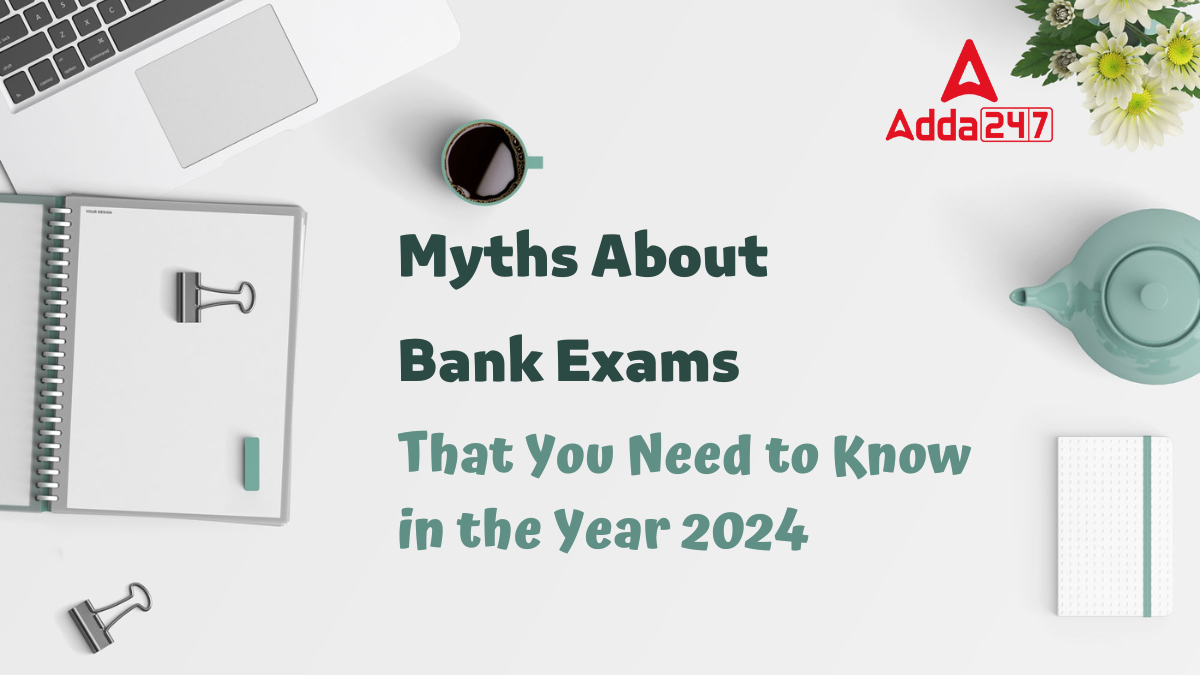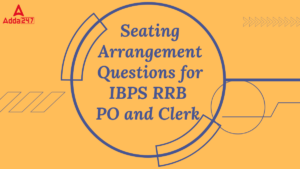Table of Contents
Bank exams in India are known for their intense competition, drawing in thousands of aspirants each year who aim to secure a career in the banking sector. However, numerous misconceptions about these exams can dissuade potential candidates from following this career path.
As the bank exams for 2024 starts with IBPS RRB, it is crucial to dispel these myths and offer candidates a transparent and accurate picture of what bank exams involve. This article will address prevalent myths about bank exams and offer insights on how candidates can prepare effectively.
Bank Exam Myths
In this section, we will dispel some myths related to bank exams.
Bank Exams are Tough to Crack
Conquering bank exams is an achievable goal for anyone willing to invest the necessary time and effort. While these assessments can pose significant challenges, they are not insurmountable obstacles. Through diligent preparation and unwavering commitment, individuals can transform these examinations into manageable tasks, removing the perception of excessive difficulty. By adopting a strategic approach and dedicating themselves wholeheartedly to the process, prospective candidates can confidently navigate these evaluations and increase their chances of success.
High-Level Mathematics is a Must
Many aspirants believe that excelling in bank exams requires mastery of advanced mathematics. In reality, the quantitative aptitude section of bank exams typically covers basic arithmetic, algebra, and data interpretation, which are manageable with regular practice. Candidates need not be mathematical geniuses; a systematic approach to learning and practising fundamental concepts is sufficient to perform well.
Extensive Coaching is Essential
There is a common belief that attending expensive coaching classes is essential to clear bank exams. While coaching can provide structure and guidance, it is not indispensable. Many successful candidates have cleared these exams through self-study and utilizing freely available online resources, books, and study materials. Discipline, a well-planned study schedule, and consistent effort are often more important than formal coaching.
One Must Be Bookworm to Clear the Bank Exams
Becoming an avid bookworm is not a prerequisite for excelling in bank examinations. Although these competitive assessments primarily cover the academic curriculum up to the undergraduate or postgraduate level, simply immersing oneself in an abundance of textbooks or study materials is not the most effective approach. Instead, it is advisable to strategically utilize supplementary resources, such as rank files or similar publications, as reference guides rather than relying solely on them.
The key to success in bank exams lies not in attempting to absorb vast amounts of information simultaneously but rather in adopting a targeted and practical approach. Regularly attempting online mock tests is highly recommended, as they can effectively identify areas of weakness. By pinpointing these areas, candidates can then leverage the available study resources judiciously to reinforce their knowledge and skills, ultimately enhancing their overall preparedness for the examinations.
English Proficiency is Not Important
Another myth is that English proficiency is not crucial for bank exams. In fact, the English language section is a significant part of the exam, assessing candidates on grammar, vocabulary, comprehension, and writing skills. Proficiency in English is vital not only for clearing the exam but also for performing effectively in the banking sector, where communication skills are essential. Therefore, candidates should not neglect this aspect and should work on improving their English through reading, writing, and practising relevant exercises.
Bank Exams are Only for the Extremely Intelligent
Some aspirants think that only those with extraordinary intelligence can clear bank exams. This myth can be discouraging and is far from the truth. Bank exams are designed to test a candidate’s reasoning, numerical ability, and general knowledge. Success in these exams depends more on regular practice, understanding the exam format, and time management skills rather than sheer intelligence. With perseverance and a strategic approach to preparation, anyone can achieve success.
Extensive Coaching is Essential
There is a common belief that attending expensive coaching classes is essential to clear bank exams. While coaching can provide structure and guidance, it is not indispensable. Many successful candidates have cleared these exams through self-study and utilizing freely available online resources, books, and study materials. Discipline, a well-planned study schedule, and consistent effort are often more important than formal coaching.
Conclusion
Bank exams in India are competitive but achievable with the right mindset and preparation strategy. Dispelling these common myths can help aspirants focus on what truly matters – consistent study, understanding the exam pattern and improving their skills across all tested areas. By staying informed and motivated, candidates from all backgrounds can succeed in these examinations and embark on a rewarding career in banking.




 GA Capsule for SBI Clerk Mains 2025, Dow...
GA Capsule for SBI Clerk Mains 2025, Dow...
 The Hindu Review October 2022: Download ...
The Hindu Review October 2022: Download ...
 Seating Arrangement Questions for IBPS R...
Seating Arrangement Questions for IBPS R...


